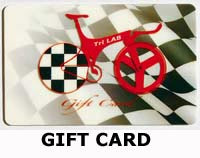News
Beets and Athletic Performance?

I had long heard that beets were an especially healthy vegetable. But my interest in Beets were peaked when I learned that they were a source of natural inorganic Nitrates (NO3-) that break down to Nitric Oxide (NO), which is commonly given in pill form to people with heart problems. NO is a vasodilator, thus widening the blood vessels, in turn lowering blood pressure and increasing blood circulation to your heart, muscles, brains and organs. I was further intrigued when I came across some Beet Elite samples at Triathlon LAB. Beet Elite is concentrated beet root crystals and is marketed at improving athletic performance more so than lowering blood pressure, circulation, etc. It comes in plain beet root or black cherry flavored. I've only tried the black cherry and it tastes pretty good to me.
As it turns out beets are super food. Beets are a significant source of natural inorganic nitrates, antioxidants, phytonutrients (anti cancer properties) and betaine (protects cells, enzymes, and proteins, fights inflammation). However, beet root must be consumed raw to get maximum vasodilator and blood circulation benefits as cooking the beet significantly reduces the available nitrates. But don't let that stop you from eating them cooked. They are also very good for you in cooked form, as they contain a vast amount of healthy nutrients. However, I am focusing on raw beet root for now and how it relates to ones athletic performance.
I did a little research and found several studies that were done to test effects of beet root and athletic performance. These studies used a beet root supplement vs. a placebo. Some of the findings of beet root effects are as follows:
- Lowers blood pressure
- Increase NO3- and (Nitrite) NO2- concentrations in the blood plasma
- Reduce VO2 uptake during exercise and increase tolerance to high intensity workouts
- Increased time to failure by 12%-14% during strenuous excercise.
- Peak performance occurred 2-3 hours after supplementation, peak lasted to about 5 hours after ingested and base-lined at approximately 24 hours. Further studies suggest it is best to consume beet root juice at least 3 consecutive days prior to get best results.
It was concluded improved athletic performance is likely due to the high nitrates found in raw beet root. It was not concluded whether other components of the beet root also effected performance, but that the key component is the nitrates. I expected this improvement to be due solely to the improved blood flow from the nitrates breaking down to NO2- and to NO. But according to some studies, one of the mechanisms related to improved performance at high intensity work levels is likely due to the increased blood flow to the type II muscle fibers (fast twitch). This increased blood flow to Type II muscles occurred with demand due to increase in workout intensity. It is also believed that additional O2 (Oxygen) is supplied to the muscles due to the higher increase of NO3- and NO2- in blood plasma. These compounds breaks down to NO and O2, thus providing more oxygen to the muscles. So, basically with beet root supplementation athletic performance is likely improved through multiple mechanisms.
- Increased blood flow in circulatory system to provide more oxygen to muscles, heart, brain, etc. due to widened blood vessels from NO
- Additional blood allocation to type II muscle fibers during periods of high intensity work loads
- Break down of the increased blood plasma concentration of NO3- and NO2- to NO and O2 within muscles to provide additional Oxygen to muscles.
It should be noted that there are some studies that have shown no apparent improvement to elite athletes in regard to improved performance. Also, there have been some people who were “non-responders”. Some of these “non-responders” did see the improvements when the dosage was increased. However, based on these studies, it seems for most people, beet root supplementation will see a positve effect on muscle and cardiovascular function. Peak level results are achieved between 2-5 hours after ingestion.
If you are interested in this subject matter, you may wish to follow Andy Jones on twitter :https://twitter.com/andybeetroot He has conducted several of these studies cited in this post.
Sources:
Beetroot juice and exercise: pharmacodynamic and dose-response relationships
Lee J. Wylie , James Kelly , Stephen J. Bailey , Jamie R. Blackwell , Philip F. Skiba , Paul G. Winyard , Asker E. Jeukendrup , Anni Vanhatalo , Andrew M. Jones
Journal of Applied Physiology Published 1 August 2013 Vol. 115 no. 3, 325-336 DOI: 10.1152/japplphysiol.00372.2013
Brynmor C. Breese , Melitta A. McNarry , Simon Marwood , Jamie R. Blackwell , Stephen J. Bailey , Andrew M. Jones
American Journal of Physiology - Regulatory, Integrative and Comparative Physiology Published 15 December 2013 Vol. 305 no. 12, R1441-R1450 DOI: 10.1152/ajpregu.00295.2013
Dietary Nitrate Supplementation and Exercise Performance
Dietary nitrate supplementation enhances muscle contractile efficiency during knee-extensor exercise in humans
Stephen J. Bailey , Jonathan Fulford , Anni Vanhatalo , Paul G. Winyard , Jamie R. Blackwell , Fred J. DiMenna , Daryl P. Wilkerson , Nigel Benjamin , Andrew M. Jones
Journal of Applied Physiology Published 1 July 2010 Vol. 109 no. 1, 135-148 DOI: 10.1152/japplphysiol.00046.2010
Dietary nitrate supplementation enhances exercise performance in peripheral arterial disease
Aarti A. Kenjale,1 Katherine L. Ham,1 Thomas Stabler,1 Jennifer L. Robbins,1 Johanna L. Johnson,1 Mitch VanBruggen,1 Grayson Privette,1 Eunji Yim,1 William E. Kraus,1 and Jason D. Allen![]() 1,2
1,2








